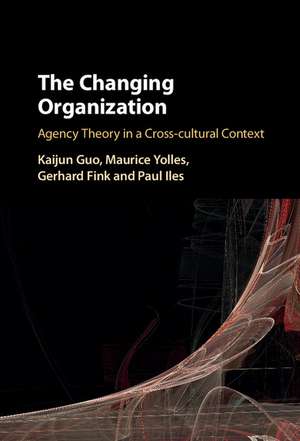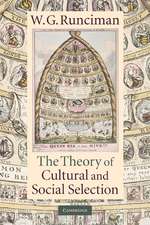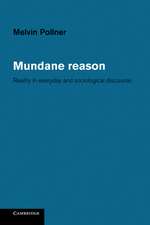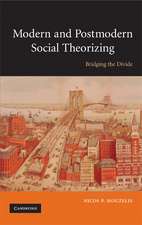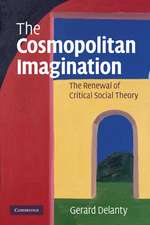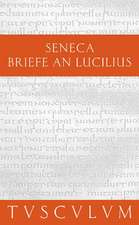The Changing Organization: Agency Theory in a Cross-Cultural Context
Autor Kaijun Guo, Maurice Yolles, Gerhard Fink, Paul Ilesen Limba Engleză Hardback – 9 noi 2016
| Toate formatele și edițiile | Preț | Express |
|---|---|---|
| Paperback (1) | 357.51 lei 43-57 zile | |
| Cambridge University Press – 23 mar 2022 | 357.51 lei 43-57 zile | |
| Hardback (1) | 896.32 lei 43-57 zile | |
| Cambridge University Press – 9 noi 2016 | 896.32 lei 43-57 zile |
Preț: 896.32 lei
Preț vechi: 1042.24 lei
-14% Nou
Puncte Express: 1344
Preț estimativ în valută:
171.51€ • 179.52$ • 142.75£
171.51€ • 179.52$ • 142.75£
Carte tipărită la comandă
Livrare economică 31 martie-14 aprilie
Preluare comenzi: 021 569.72.76
Specificații
ISBN-13: 9781107146808
ISBN-10: 1107146801
Pagini: 466
Dimensiuni: 152 x 229 x 25 mm
Greutate: 0.79 kg
Editura: Cambridge University Press
Colecția Cambridge University Press
Locul publicării:New York, United States
ISBN-10: 1107146801
Pagini: 466
Dimensiuni: 152 x 229 x 25 mm
Greutate: 0.79 kg
Editura: Cambridge University Press
Colecția Cambridge University Press
Locul publicării:New York, United States
Cuprins
Part I. The Agency: 1. The cultural agency; 1.1 Introduction; 1.2 The configuration approach; 1.3 Viable living systems and cultural agency; 2. The instrumental and strategic agencies; 2.1 Introduction; 2.2 The strategic agency; 2.3 Two views on strategic management; 2.4 The knowledge management paradigm; 2.5 Complexity and viable systems; 2.6 Knowledge cybernetics; 2.7 Agency pathology; 3. Agency personality; 3.1 Introduction; 3.2 Modelling the collective agency; 3.3 Agency trait theory and Maruyama types; 3.4 Intelligences and efficacy in agency traits; 3.5 Conclusion; 4. The intelligent agency; 4.1 Introduction; 4.2 Theories of intelligence; 4.3 Organisational intelligences; 4.4 Agency process intelligences and efficacy; 4.5 Knowledge strategy agency case; 5. Agency types and traits; 5.1 Introduction; 5.2 Traits, enantiomers and agency type; 5.3 Individualism and collectivism; 5.4 Some thoughts; 6. Agency consciousness; 6.1 Introduction; 6.2 Undecidability and generic system hierarchies; 6.3 Substructure modelling; 6.4 Illustration of superstructure modelling; 6.5 The case of negotiation and agency internalisation; Part II. Agency Change: 7. Joint alliances; 7.1 Introduction; 7.2 International alliances in Central Europe; 7.3 Knowledge management and knowledge transfer in a cross-cultural context; 7.4 Viable knowledge creation and learning in international alliances; 7.5 Modelling alliances; 7.6 Application of the model to a case study of the Czech Academic Link Project (CZALP); 7.7 Application of the model to a case study of the Czech Academic Link project (CZALP); The CZALP Project Phase 1; The CZALP Project Phase 2 and 3; 7.7 Outcome; 8. Agency dynamics; 8.1 Introduction; 8.2 Kuhn, Piaget: from paradigm crisis to transformation; 8.3 Understanding paradigms; 8.4 Paradigms under change; 8.5 Transformation and paradigms; 8.6 Trait system dynamics; 8.7 Baoshang Bank case study; 8.8 Some thoughts; Part III. Agency as Society: 9. The sociological and political agencies; 9.1 Introduction; 9.2 Parsons; 9.3 Luhmann; 9.4 Habermas; 9.5 Agency and socio-cultural processes; 9.6 The political dimension of agency; 9.7 Luhmann, Habermas, agency and practice; 10. The economic agency; 10.1 Introduction; 10.2 Economics and policy; 10.3 Macroeconomic modelling; 10.4 Economic agency; 10.5 Traits, policy and macroeconomics; 10.6 Case situation: the 2008 European Recession and mindscapes; 10.7 Observations; 11. The financial agency; 11.1 Introduction; 11.2 The Chinese context; 11.3 The impact of shadow banking; 11.4 Viewing banking through agency; 11.5 Agency pathologies and corruption; 11.6 Conclusions; Notes; References; Index.
Notă biografică
Descriere
This book provides a multidisciplinary approach for studying the management of change under conditions of complexity.
